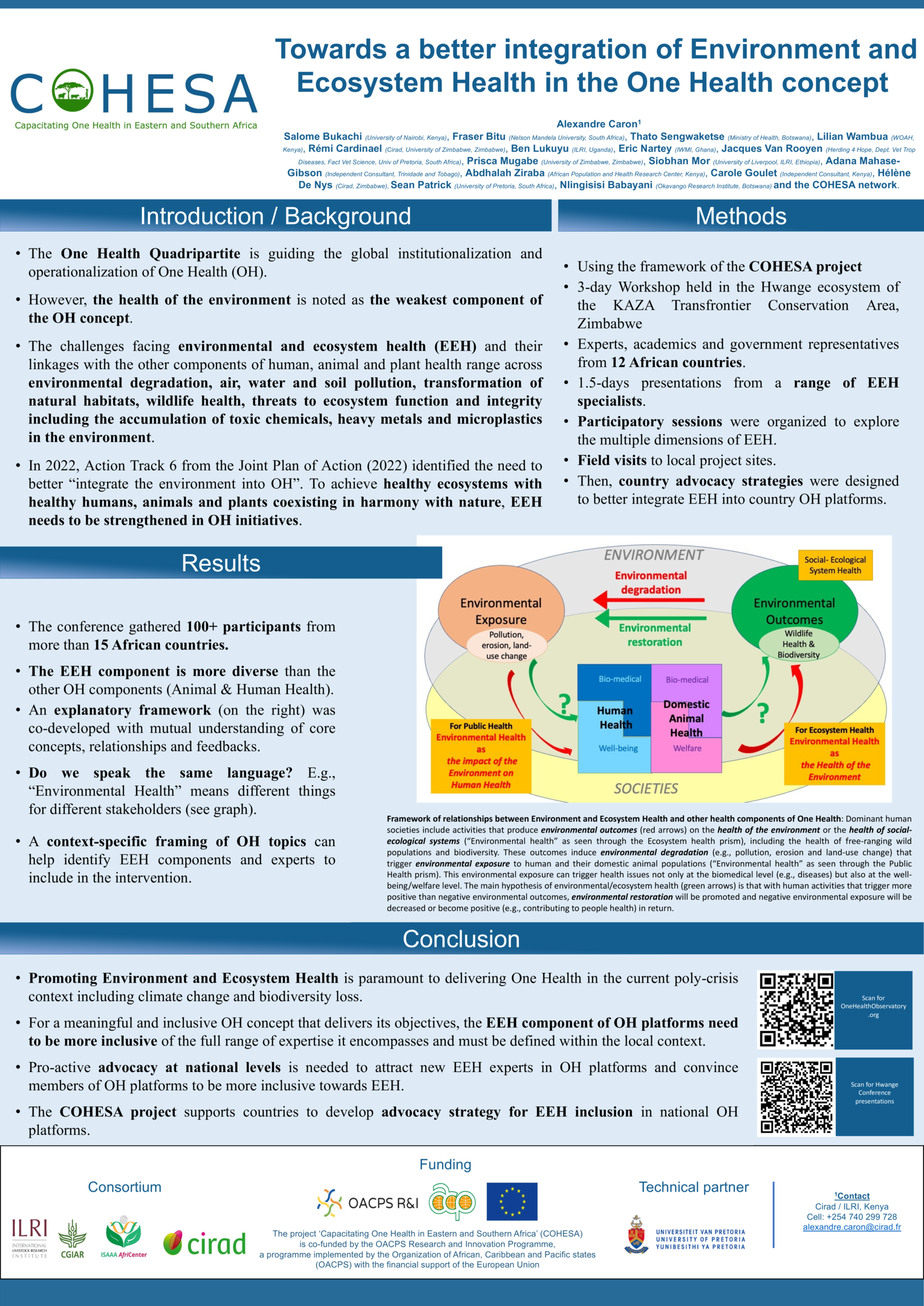
Description
Background
The environment health component is the weakest component of the One Health (OH) concept. The OH Quadripartite is guiding globally the institutionalization and operationalization of OH. In 2022, Action Track 6 from the JPA (2022) identified the need to better “integrate the environment into OH”. The challenges facing environmental and ecosystem health (EEH) and their linkages with the other components of human, animal and plant health range across environmental degradation, air, water and soil pollution, transformation of natural habitats, wildlife health, threats to ecosystem integrity including the accumulation of toxic chemicals, heavy metals and microplastics in the environment. This represents complex and wicked problems.
To achieve healthy ecosystems with healthy humans, animals and plants living in harmony with nature, EEH needs to be strengthen in OH initiatives.
Methods
In the framework of the COHESA project, experts, academics and government representatives from 12 African countries gathered to brainstorm on the better inclusion of EEH in OH, a thematic identified previously by country representatives. A number of EEH specialists presented their perspectives on the OH concept. Participatory sessions were organized to explore the multiple dimensions of EEH. Then, advocacy strategies were designed to better integrate EEH into OH platforms.
Results
The conference was organized in Zimbabwe in February 2024 with more than 100 participants including also local stakeholders and local community representatives from the Hwange ecosystem.
Through expert presentations, follow-up discussions, participatory engagement and field visits, the group came up with a better understanding of the role and scope of the EEH component of the OH concept. Several key insights were proposed:
- Do we speak the same language? There exist multiple definitions of concepts such as environment, wildlife and health that influence different perceptions of EEH by different stakeholders from the biomedical, natural and humanities fields.
- A working framework was thus developed to support the understanding of (and not replace) the OH framework from a EEH perspective gathering the different views of specialists.
- Engagement with local stakeholders called for a locally-based framing of the OH concept, the need for bottom-up and demand-driven interventions that draw their experience and knowledge from participatory and community-based interventions.
- A meaningful representation of the EEH sector in OH platforms would mean including a significantly wider range of experts.
- Pro-active advocacy at national levels is needed to attract new EEH experts in OH platforms and convince members of OH platforms to be more inclusive towards EEH.
Conclusions
For a meaningful and inclusive OH concept that delivers its objectives, the EEH component of OH needs to be widened and strengthened. Achieving this could be the tipping point for the OH concept to accomplish its role in the poly-crisis context in which the world is sinking.
Comments
Add new comment